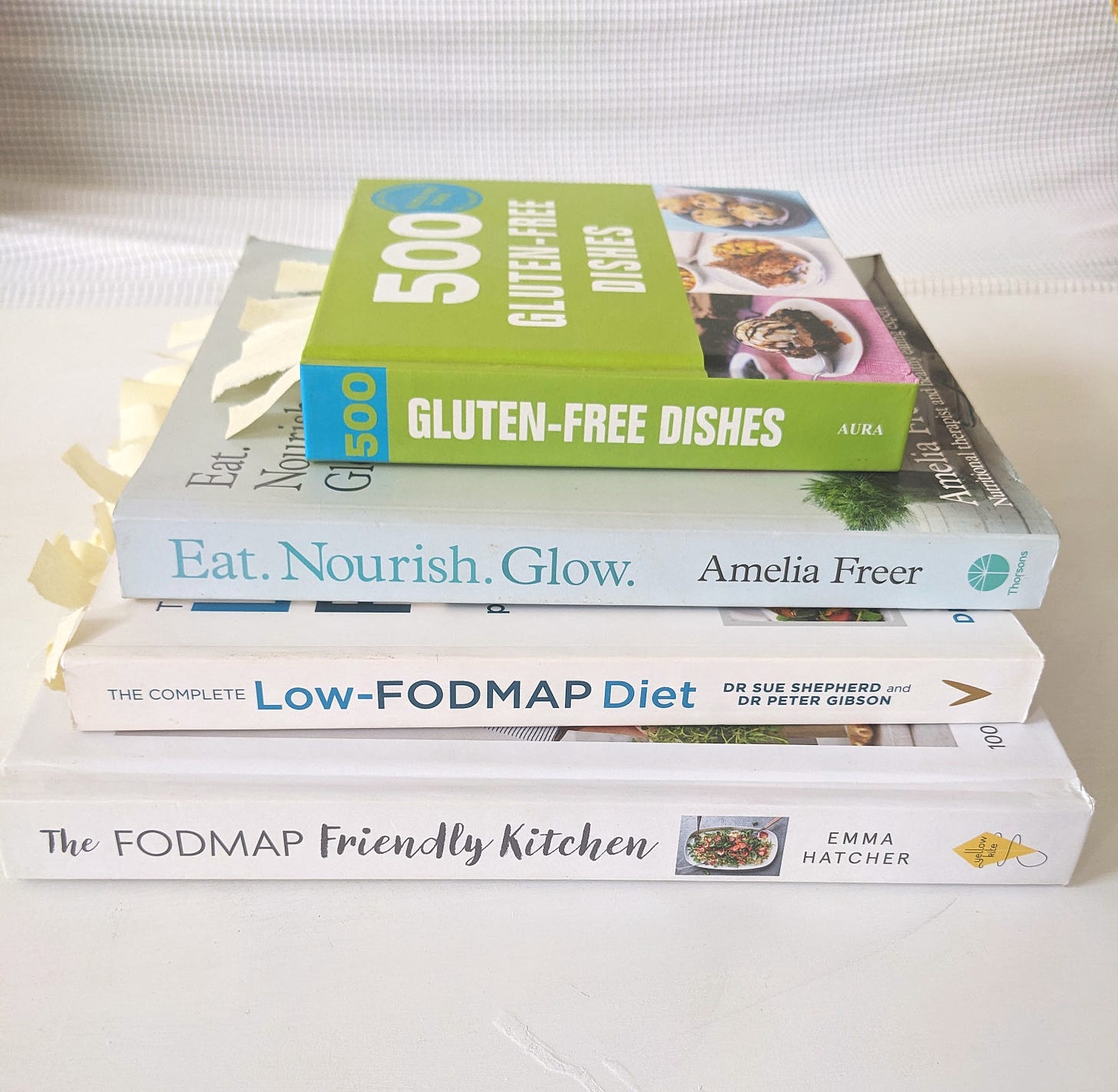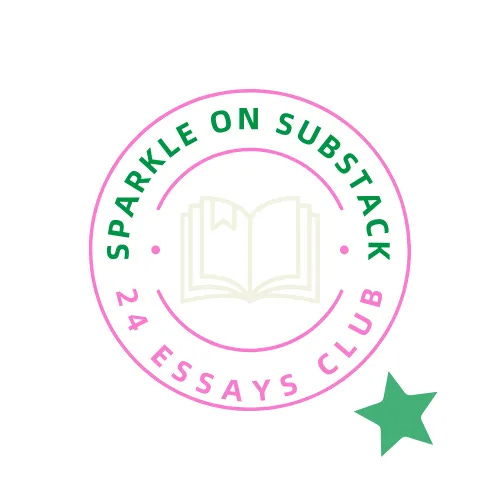(Eds note: feeling somewhat constrained by the headlines of my essays always needing to start with musings, meanderings or methods - a purely self-imposed requirement - for the next couple I’m going to play around with a different format. They will still land in your inbox on regular rotation - and you may not have even noticed the consistent naming pattern anyway! Thanks to for the nudge to try something different.)
Vignettes
There I was again, doubled over in pain, wanting to get under a blanket and curl up on the sofa; instead finding ways to keep myself propped up towards my laptop. Surrounded by hot water bottles and heat packs, both to stop the shivers, and to numb the pain. I’d rather feel the burn than feel the thunderous ache. Looking for light-touch tasks to get through the brain fog that descends; pushing through the fatigue until I can find a second wind. Pre-pandemic of course, even that wasn't an option; it was more grin and bear it at the office.
At other times, a general exhaustion. No pain, not really, just an overwhelming tiredness that I do not let myself succumb to, because I’m a young(ish!) woman who should be full of life! Should be full of energy! And so I try to be, because that is what is expected, and who am I to attempt defying that by trying to explain, to myself, let alone anyone else, a deficiency in x, y, or z.
In the supermarket, desperately looking at labels for a sign that my body might respond well to something, or warnings that it absolutely will not. Later, my body ignoring those carefully crafted choices, and striking the hot iron of pain anyway. And so, yeah, out for coffee with a friend the next day, looking for a pick-me-up, I will have the cake and eat it please and thank you, because you can indeed be too careful, and there’s an immense lack of joy to be found in that.
Pushing through
But the thing is, I’m so used to the pain and fatigue, sometimes in tandem, sometimes the latter following the former, sometimes separate and unrelated, that I don’t even really clock it. One or the other hits, and I might think, okay here we go again, but I don’t let it stop me in my tracks. I simply don’t feel I have the time. Stopping in my tracks doesn’t fit with my on-the-go lifestyle. A brunch to get to, a work meeting to present at, someone’s birthday dinner to dress up for. If I let it stop me, I’d miss so much. I’d feel I was letting people down. And so it is entirely normal for me to strap a hot water bottle to myself with a dressing gown belt as I do my makeup and style my hair for a gathering; to have to sit down and look up at my wardrobe, trying to determine the easiest thing to put on that still fits the vibe of the person I want to present as for said gathering. The woman I am. Which is not a woman defined by this body which all too often just does not seem to work properly.
But what if I were to be defined by it? What if I let myself say, sorry, working through some pain, might be a bit late. Or, actually I’m feeling really drained and the dark circles are looking worse than ever, would you mind if we re-arrange? But that doesn’t feel like me; it’s not who I am. I show up. I’m on time. I’m organised. I don’t drop the ball. Conditioned as women are to always be doing our best, in all realms all of the time, and not let anyone think otherwise.
More than me
Then I wonder, what if one day it’s not just me and my body and energy to think about, but that of a little one too? Their health and wellbeing, in relation to mine as a mother, growing them, birthing them, raising them. What happens when they are relying on my body to function as it should, to provide the nutrients they need to thrive. The energy from my body to theirs - what if I can’t provide it? I’ve always just assumed it would be fine, that I would be able to. Many women’s bodies have been doing this for, well, forever. My health challenges are not uncommon, I just perhaps have an annoying concoction of them. Plus there are women with far greater health challenges than I, managing to be excellent mothers, and carers more broadly, in all the ways both society and biology requires them to, I’m sure.
And yet, at a recent hospital appointment preparing for an iron infusion (which, as it turned out, couldn’t go ahead that day as they needed more up to date bloods - talk about organisation) I was asked by the doctor whether I had any children… yet. Not whether I had any at all, or whether I was planning to, in the near or distant future, but whether I had indeed yet met this matrescence milestone. That little three letter word hit me, and as there was no follow up context provided as to why the question was asked (and, to be fair, I didn’t query it), I don’t know whether it was somehow necessary to the medical questioning it featured in, a slip of the tongue, a matter of communicating in likely not a mother tongue (her name and accent suggested the doctor was Spanish), or indeed, a a reminder that as a woman there is still an expectation for this baby-making business to be something I WILL be involved in, so better get thinking about things now. Lucky for all of us in that room, I think, the doctor, my partner and I, having children is something I would like to be part of my future, rather than something I know I do not want, or indeed, have been told I cannot have. If either of those other experiences had been true, would I have felt able to say it? I’m still slightly annoyed I didn’t just make the point anyway.
Feeling heard
But this is not to paint a negative picture of that appointment, and especially not that doctor. She was the health professional that has perhaps taken most notice of the complexity of my ailments in at least six years. She was thorough with her exploration of my medical history, rigorous with the request for new blood tests listed across four long forms, and meanwhile made a referral to another department at the hospital for further investigation of my shopping list of issues, shocked that this hadn’t been done before.
She listened, and she learned. She asked sensible questions (on the whole) to find the best course of action. She explained things back to me. She made links between things that no health professional had before (like how the particular type of inflammation I likely suffer with can indeed impact absorption of key nutrients). I felt emotional at how seriously she seemed to want to take my treatment; and not just to issue a quick-fix plaster, but to actually explore what’s going on more holistically. Imagine that. Walking into the office of a medical professional, with no visible wounds or woes, and them actually wanting to dig in to what’s going on under the surface.
A stark contrast to other medical professionals who, even this year, have looked puzzled by my descriptions of pain, told me it isn’t normal, and suggested I just cut out dairy and see how I get on. The look on my face in such moments is enough to sour my almond milk I’m sure, as they ask nothing about the years of diet trials and tribulations, trying to cure or prevent various ailments.
As an aside, I do buy into the notion of ‘food as medicine’ - perhaps an essay for another time - I just don’t think it’s the be all and end all.

A time to hope?
And so, I have hope, that maybe this will spark a turning point. Having someone with expertise engaged in tackling the pain and fatigue, helping me along on my own journey with it.
I’ve had sparks of hope before though. Starting a new job last year and getting access to private health insurance. This will be it, I thought, I’ll get to see some specialists who’ll have the time and inclination to really want to help. But, as it turned out, I fell at the first hurdle. Chronic conditions were not eligible to be dealt with. Of course, because why would it make sense to look into things that likely impact someone’s quality of life and therefore potentially even the quality/quantity of their outputs at work? No, no sense at all in that.
You might be reading this thinking, well it all sounds a bit vague, what’s actually wrong? Or, you might know me and think, why don’t you talk about this more?! I’ve deliberately kept it that way, partly because I still feel a (probably unnecessary) level of embarrassment around talking about all the ins and outs of these chronic conditions and their impact on me, and because there are still question marks over what is actually medically wrong, never mind the why. There’s also the sense of knowing others have it far worse than me, so what right do I have to complain, or even share?
But after this recent appointment, it felt like a good time to perhaps say something, about what I’m navigating on the health front. I’ve also recently discovered
’s Lady’s Illness Library, and listened to conversations with women doing so many great things, all while living with challenging ailments themselves, not least and . Sara’s conversation with on the Life in Food podcast from a few years ago was also a good re-listen this week. The women sharing their stories in this way are a lesson to us all. If nothing else, to affirm that sometimes we need to just take a pause and actually rest in order to recuperate. Even as a woman. Not only is that fine, it’s entirely necessary. I’m trying to let this sink in.So if you’re navigating anything similar, I hope there might be something you can take from these musings, whether it be hope, comradery, or just a good podcast recc.
And if not, thanks for taking an interest and reading this far anyway.
This is probably the most vulnerable I have felt so far in sharing an essay on The Navigation.
If you liked this piece and would like to show some support without a paid subscription, a Ko-fi coffee is always appreciated.☕
Thanks once again to Claire Venus and all taking part in the Sparkle on Substack 24 Essays Club for the encouragement to write with an open heart and mind.






Oof, Lauren, as I told a friend the other day, different variations of chronic illness are like different flavours of shit sandwich, rather than a league table. (And apologies for the metaphor which I found in Elizabeth Gilbert’s book, Big Magic and repurposed.) The shame thing... I grapple with a lot, though it (mostly) eases as I challenge it. You might find substacker Devon Price’s book, Laziness Does Not Exist helpful, I did.
So much to relate to here after over 15 years of living with an autoimmune disease. My body said no to motherhood, despite my best efforts to override it. The turning point for me came with learning to regulate my nervous system, and the realisation that that had been draining my tank and driving up inflammation in my body. Wishing you well with your own journey and discoveries ❤️